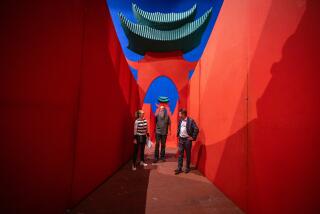Historic Voices Showcased in ‘Turandots’
- Share via
Two radio broadcasts of Puccini’s “Turandot” have been released on compact disc: a 1938 performance from Turin led by Franco Ghione (Nuova Era HMT 90002/3), and the Metropolitan Opera’s 1961 edition conducted by Leopold Stokowski in his only Met assignment (available only through the Metropolitan Opera Guild).
Ghione took his lead from his singers, most of whom seemed to prefer slow tempos. Gina Cigna, a famous Norma of her day, was an impressive Princess Turandot with the needed steel in her tone and a tendency to sing flat at the very top. At 26, Magda Olivero was just beginning her rise to prominence in Italy and sang an affecting Liu. She spoiled a lovely “Signore, ascolta” with a downward run of sobs from the top B-flat, suggesting that her penchant for dramatic exaggeration was there from the beginning.
The revelation is Francesco Merli, who created Calaf in the London premiere. Although he was overshadowed in America by Gigli and Lauri-Volpi, this performance finds him more sensitive and tasteful than either.
The orchestral and choral sound from the Italian broadcast is so distant that it may have been performed on the Swiss border. The engineers, however, have done a splendid job with the more recent Met broadcast, which captures two great voices in their prime.
Indeed, Birgit Nilsson and Franco Corelli provided textbook illustrations of the difference between healthy fortissimo singing and screaming. Corelli even added the alternate high C at the end of Act II. Both phrased expressively in the lyric portion of the final duet.
Anna Moffo had the arching piano line for Liu, but also the dramatic spunk that raised her slave girl out of the happy-masochist category. Stokowski conducted with his wonted care for color and orchestral balances, but he was often at odds with the singers and chorus.
More to Read
The biggest entertainment stories
Get our big stories about Hollywood, film, television, music, arts, culture and more right in your inbox as soon as they publish.
You may occasionally receive promotional content from the Los Angeles Times.










